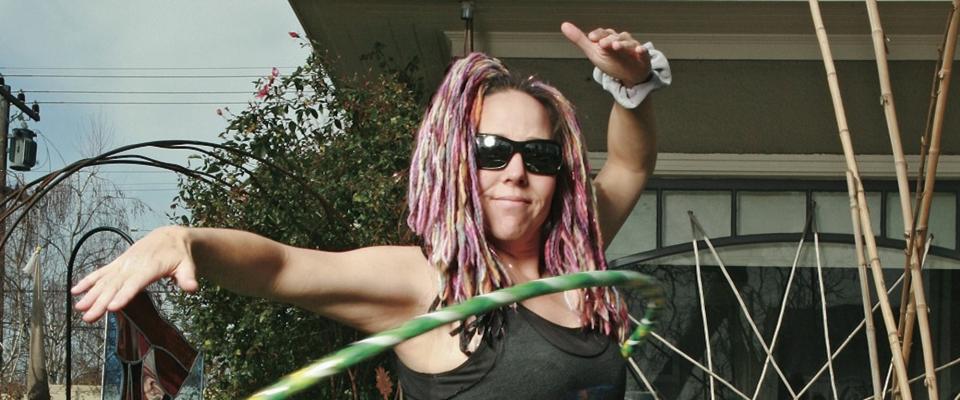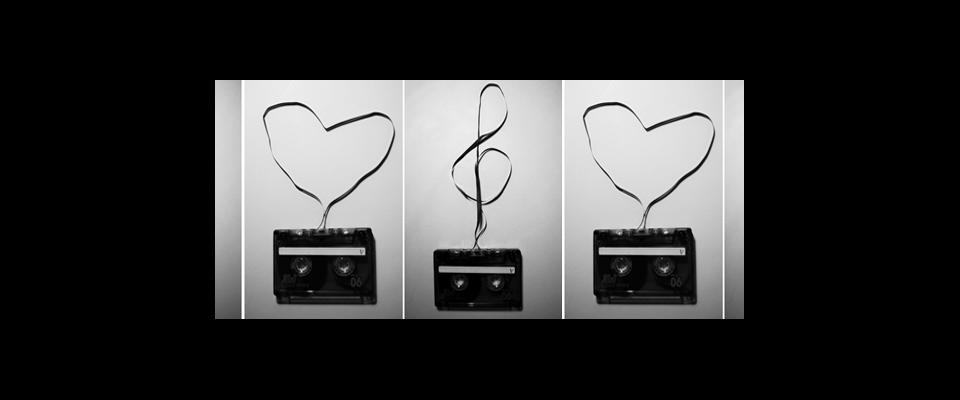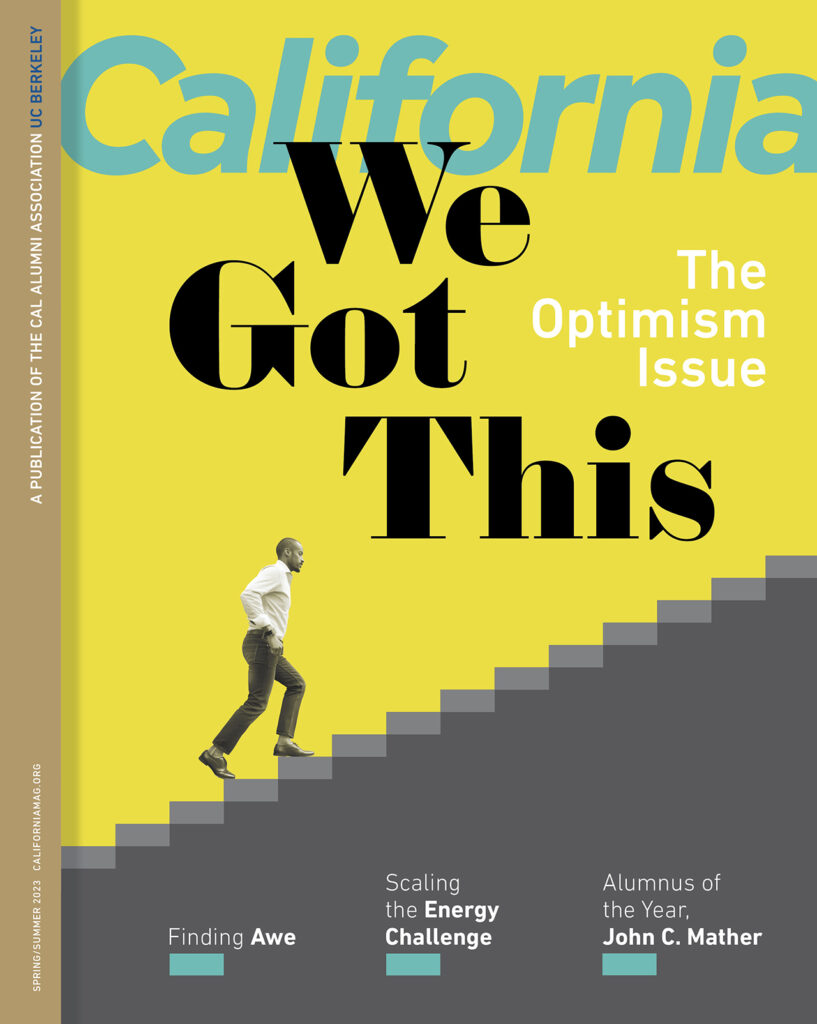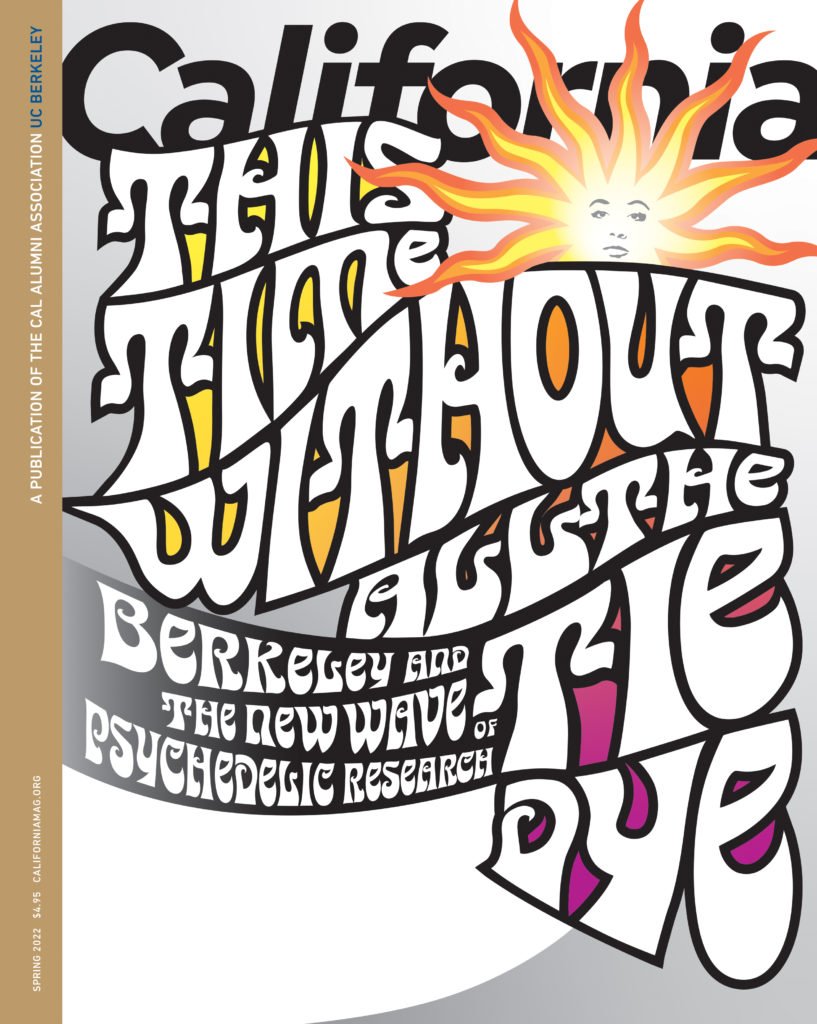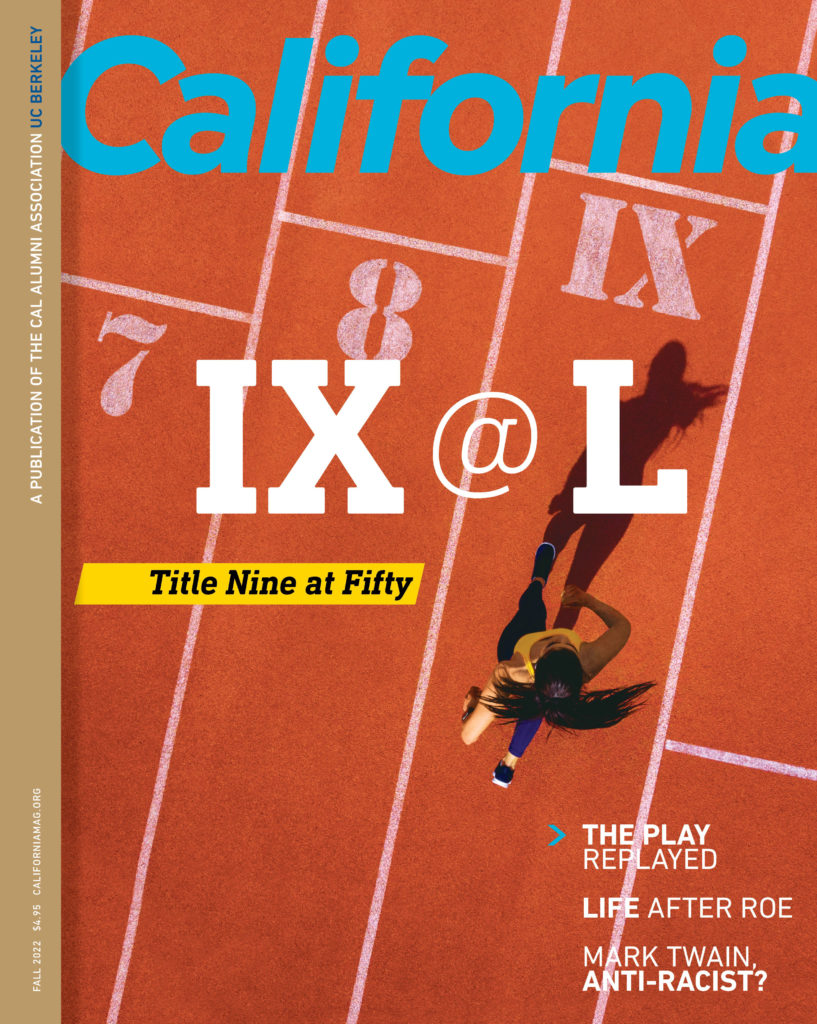Wendy Northcutt has made a host of obscure people famous, and although very few lived to savor their notoriety, she anticipates one day sharing their dubious honor. It almost happened when a recent heat wave gave her the idea to “air-condition” her sweltering home: She pried up an oubliette floor grate in her hallway, intending to install a fan to suck up the basement’s cooler air. But she left to answer the phone, and hours later she strode back down the hall and obliviously stepped into the gaping hole. In the milliseconds as her body swooshed down, she thought “Oh nooooooooooo! I’m gonna win my own Darwin Award ….”
As followers of the Darwin Awards know, the prize goes to those who improve the gene pool by accidentally removing themselves from it in an astonishingly obtuse fashion. Since the primary requirement is an irrefutable demonstration of “self-evident ineptitude for survival,” most win posthumously, although a few have merely inadvertently sterilized themselves. To date, nearly 1,000 unwitting contestants have garnered Darwin distinctions, appearing on the 7 million-hit-a-month website darwinawards.com and/or in one of six books: from the first, a New York Times bestseller, to the most recent, The Darwin Awards: Countdown to Extinction.
Northcutt hasn’t won it—yet, anyway—but she is, ironically, the award’s chief promulgator. (She managed to wriggle out of the grate hole and summon help, escaping with a broken leg, but life and reproductive ability intact.) In addition to the website and books, she also oversees a product line of greeting cards, clothing, and condom packets decorated with cartoon sperm spouting quotes such as “Ready, Fire, Aim!” and “Tragic Proof of the Missing ‘Why?’ Chromosome.”
A self-proclaimed klutz, Northcutt nonetheless may be making the most creative use yet of a Berkeley degree in molecular biology. “I consider myself, first and foremost, to be a scientist,” she enthuses, labeling herself a thanatologist—one engaged in the study of human death. Not that the Darwin Awards are a genuine example of scientific rigor and data analysis; they are, rather, designed to make us chuckle in rueful recognition human folly.
Her unconventional career began shortly after graduation from Cal, during a stint at a Stanford laboratory where she waited for experiments to run their course. In her down time, she learned to construct newfangled things called websites. Soon two of her creations were the most-visited sites on the Stanford server. The first, dubbed “Pet Porn,” featured oddball photographs: a kitty in a negligée, a dog sticking its tongue into its owner’s mouth. The second, which she labeled “Darwin Awards,” catalogued imbecilic demises.
“The Darwins offer dazzling displays of doomed ditziness: the man who tried to cure constipation by inserting a 19-inch eel into his rectum, the wise guy who attempted to club chickens to death with the butt of a loaded gun, the old coot who anchored his boat with a WWII aviation bomb…”
“Pet Porn” fell by the wayside, but in 1993 Northcutt migrated “Darwin Awards” to another server and secured the domain darwinawards.com. Though she didn’t coin the term—the Usenet archives list a 1985 use of the term about a man who shook a vending machine until it toppled over on him—it was Northcutt who shaped the Darwin Awards into a pop culture sensation.
Moderators screen submissions, and website visitors vote for their favorite nominees, but the final arbiter of Darwin Awards is Northcutt herself. She applies five rules: nominees must be rendered unable to reproduce, whether by death or sterilization; they must display spectacular stupidity, overlooking risks that are seemingly impossible to overlook; they themselves must have chosen the action; they must be at least 16 years of age and not clinically cognitively impaired; and their stories must be true.
The Darwins offer dazzling displays of doomed ditziness: the man who tried to cure constipation by inserting a 19-inch eel into his rectum, the wise guy who attempted to club chickens to death with the butt of a loaded gun, the old coot who anchored his boat with a WWII aviation bomb, the farmer who avoided bee stings by sealing his head in a plastic bag, the frugal fellow who topped off his car’s brake fluid with dishwashing liquid, and the man who took his drinks rectally and gave himself alcohol poisoning.
“The funniest examples are the things I could totally see myself doing,” Northcutt says, citing the case of two brothers frantically chatting on their cell phones, trying to locate each other while driving around a parking lot. They met in a head-on crash—surviving and therefore garnering only a Darwin honorable mention.
The new book relates the tale of a Russian chemistry student who often rolled his chewing gum in citric acid crystals for a tarter, longer-lasting taste. But he got more than a blast of extra flavor when he absent-mindedly dipped his gum into an open container of chemical explosive and stuck it back in his mouth: The blast killed him instantly, in what Darwin readers dubbed a “jaw-dropper” tragedy.

Similarly unlucky was convicted murderer Michael Anderson Godwin, whose death sentence had been commuted to life in prison. Later, sitting on a metal toilet in his South Carolina cell while trying to repair his TV set, he bit down on a live wire—efficiently carrying out the original sentence in a makeshift electric chair.
How does Northcutt collect these twisted tales of woe? To find out, I visited the Darwin Awards control center—Northcutt’s cottage, nestled among rows of Craftsman-style homes in a tidy neighborhood near downtown San Jose.
Distinguishing her front yard from those of her neighbors is elementary: It’s practically a museum of potentially lethal hazards. A couple of rickety ladders frame the central walk, huge hula hoops rimmed in shiny wire swing from the tree branches above, strands of thick rope dangle down to the ground, and coils of electrical cord snake across the yard. Shoes are scattered across the front porch, which also accommodates a barbecue grill. In short, the path to the front door seems booby-trapped.
“Hello, hello, welcome,” Wendy Northcutt sings out, stepping onto the porch with a warm smile. But she seems puzzled when I ask about the treacherous terrain. “I never even thought about that,” she says with a shrug, offering an explanation for each. The ladders are garden trellises. The hula hoops are her latest obsession, after a trip to Burning Man inspired her to craft a hoop a day for a year. The ropes are for hoisting the embellished hoops aloft. The grill is for the obvious: cooking. And although she can’t quite remember why the electrical cord is out, it is insulated and grounded—so hey, what could go wrong?
She floats toward the front door clad in a gauzy skirt so voluminous that, when stretched from side to side, it resembles butterfly wings. Her sock-and-sandal-clad feet poke out from beneath the skirt, and she tucks her long, straight brown hair behind her ears, which are adorned with earrings fashioned from feathers. The back of her hand is covered with slightly smeared black ink that, upon closer inspection, reveals an indelible “to do” list.
“Would you like to see my infamous oubliette?” she inquires, leading the way down a hall adorned with a huge poster paying homage to Marvel comics. It requires little imagination to visualize her plunging into a hole in the floor.
“If it’s not too painful or slow a way to go, I would definitely like to win a Darwin Award on my grand exit,” she acknowledges. “And when I’m gone, people who know me will say ‘That was so much like Wendy—she was always doing crazy stuff like that!'”
“See, here I go. Feel free to use this ridiculous stunt in your article.”
Her bright office is studded with grenade-shaped toys, candles, and statuary inspired by one of the Darwin Awards’ most popular winners: the Croatian show-off who juggled hand grenades until he went out with a bang.
A large window overlooking the yard is speckled with random strips of bright blue tape, which Northcutt explains deter the finches who used to stun themselves by flying into the plate glass. “When you think about it, windows are relatively new in bird evolution, so they’re still adapting,” she says. “My problem now is that the birds are getting used to the blue tape, and they’ve started knocking themselves out against the window again.” Most of her office furniture is on wheels, enabling her to roll from room to room to work. “I love that I can just move,” she says, propelling her chair backward—and promptly crashing into her desk, tipping over a full glass of water, and dousing her papers and her Macbook Air computer.
“See, here I go. Feel free to use this ridiculous stunt in your article,” she says, clutching her ample skirt to mop up the puddles.
“This isn’t the first time that’s happened,” concurs her assistant, Melissa, with a playful roll of her eyes.
“But it’s the first time this week,” Northcutt offers defensively. “What’s today, Tuesday? Oh wait, no it’s not. I knocked over a cup of tea last night. Ah well, no harm done….” She continues using her skirt to dry a handful of pens, pencils, and an X-acto knife.
“Careful, that’s really sharp,” Melissa interrupts, retrieving the blade from Northcutt’s hands.
Resettling in her chair, Northcutt describes a typical week of trolling. For the past 18 years, visitors to her website have submitted an average of 500 entries a month—anecdotes gleaned from their local newspapers, the Internet, and even personal experiences, increasingly starring members of their own family.
Exhibit A appears as a winner in the newest Darwin book. A daughter submitted the tale of a father who relished lighting firecrackers from his lap with a cigarette and tossing them out the car window while driving: “Dear old Dad accidentally added a bounce to his light-throw-bang sequence: the firecracker bounced off the door and back into his lap! A few firecrackers popped, setting off the remaining firecrackers, and there was some pretty creative driving for a while, amid much smoke and cussing. I do not know the extent of the damage to Dad’s reproductive organs—but I do know that I was the last of nine children!”
Northcutt also relies on stories told to her by people in the know. During a November appearance at San Francisco’s Commonwealth Club, a man in the audience prefaced a question by mentioning that he was an ER doctor. “Great,” she said, “Let’s have dinner together later.”
In the early days, readers of the Darwin Awards website could post nominations directly online, sans filter. That changed in 1999 after someone nominated the 12 students and former students of Texas A&M University who were crushed to death under thousands of logs with which they were constructing a pre–football game bonfire. Northcutt received a slew of complaints that the post was insensitive and hurtful. “People were crying and sending me pictures of their loved ones. I felt terrible. And they were right: It was a tragedy and it wasn’t funny,” she recalls.
So she cultivated a few volunteer moderators to screen submissions, ensuring they meet eligibility rules, are fresh, aren’t hoaxes, and aren’t unduly offensive. “I’ve never met any of them in person,” she says. “They are not paid—they’re just devoted.”
Men are nominated for Darwins about ten times as often as women, perhaps because males are more innate risk-takers. Northcutt goes out of her way to find deserving females, such as the woman from Shongaloo, Louisiana, who during a flood opted to go surfing down a surging spillway on a mattress. Not an air mattress, mind you: a foam egg-crate mattress pad. It sank and so did she, prompting the Darwin Awards to note: “Parents, warn your children! Wetting the bed can be deadly.”
Northcutt and her moderators attempt to verify every example they use, although they often include unconfirmed and even false accounts, labeling them as such. “Face it,” Northcutt says, “some of them are just too good to leave out.”
“If nobody hears about you, you’re gone forever,” she says, “but if you win a Darwin Award, you are immortalized.”
Even a diligent attempt to verify an account may go awry. Take the Darwin Award to the petty criminal who pilfered lobsters with which to prepare a romantic feast for his fiancée: He reportedly stuffed them down his pants, where the pincer-wielding crustaceans performed an impromptu vasectomy. Northcutt confirmed the story had appeared in a Key West, Florida, newspaper, but after a few readers insisted it was bogus, she double-checked with the Florida editor, who vouched for the fact that the story was indeed true. The skeptical feedback continued unabated, so she triple-checked.
“And that was when the reporter said, ‘Well, I read it right on the Internet, so it must be true,'” she recalls.
Occasionally, embarrassed family and friends will contact Northcutt, protesting a particular Darwin Award conferral. Sometimes she exercises gentle persuasion, telling them the story can caution others and memorialize the person they lost. “If nobody hears about you, you’re gone forever,” she says, “but if you win a Darwin Award, you’re immortalized.” If they continue to object, she will omit the name and in some cases jettison the story altogether. No one has ever threatened to sue over the inclusion of an incident.
Northcutt dedicated her first book to her parents, with the acknowledgement that “the apple doesn’t fall far from the tree.” They divorced when she was 2, so she spent summers with her dad in Pinole and the school years with her mom and stepfather, a military man.
Irrepressibly curious, young Wendy was always conducting experiments: coating her long hair in Vaseline, igniting blue Mylanta bottles to observe how they melted, playing veterinarian by bandaging up the cat so tightly the family almost couldn’t free him. “I was very frustrating as a child,” she says with a satisfied grin.
School was excruciating: She got effortless straight As and was eccentric, making her a target for bullying, especially on military bases, where conformity was a virtue. “I knew I was weird and ugly and unattractive, but I also knew that if these kids got to know me they would like me,” she says. The bullying continued after her family resettled in rural Northern California, prompting her to quit high school, take the proficiency exam, and drift for several years before enrolling in Diablo Valley Community College and eventually the University of California, Berkeley.
She continues trying to be a science educator in her Darwin Awards books, slipping in frequent sidebars. After relating the tale of an Ojai woman who was bitten by a rattlesnake during a Mother’s Day hike and whose clueless family tried to counteract the bite by Tasering her (not once but twice), Northcutt included information about how antivenom was developed and why it works.
“And for those still in doubt about the efficacy of a Taser against snake venom,” she wrote, “thanks for the job security.”







